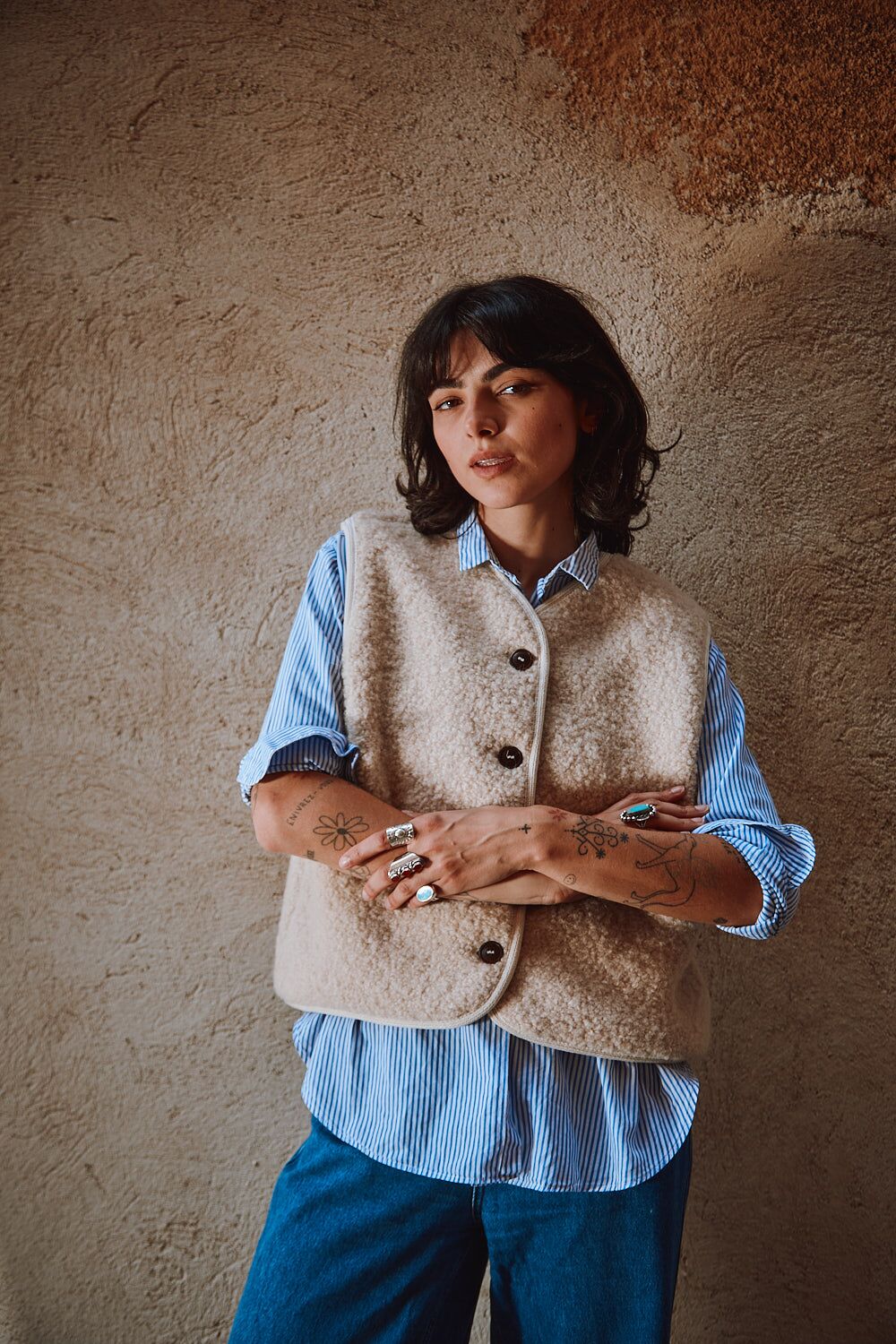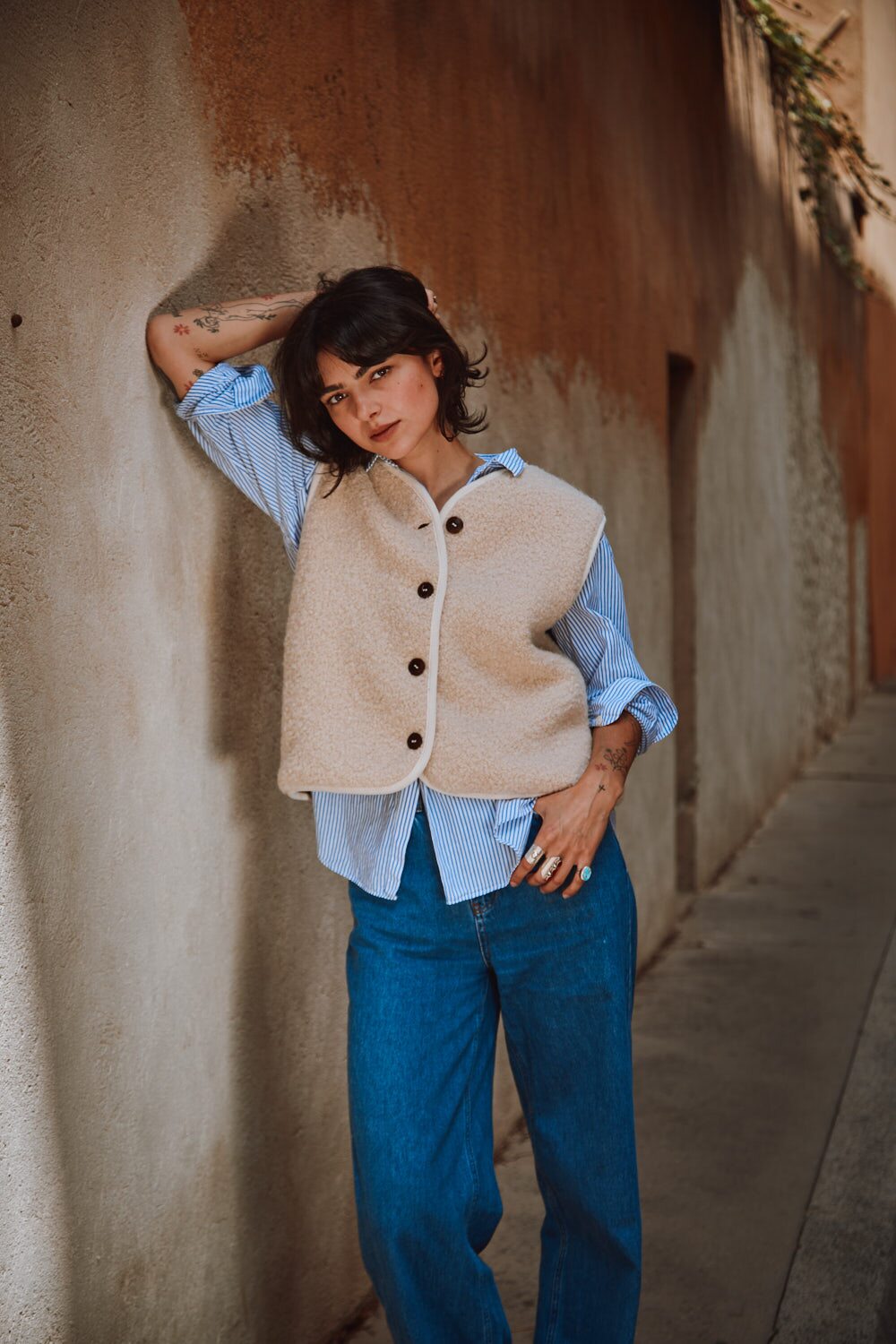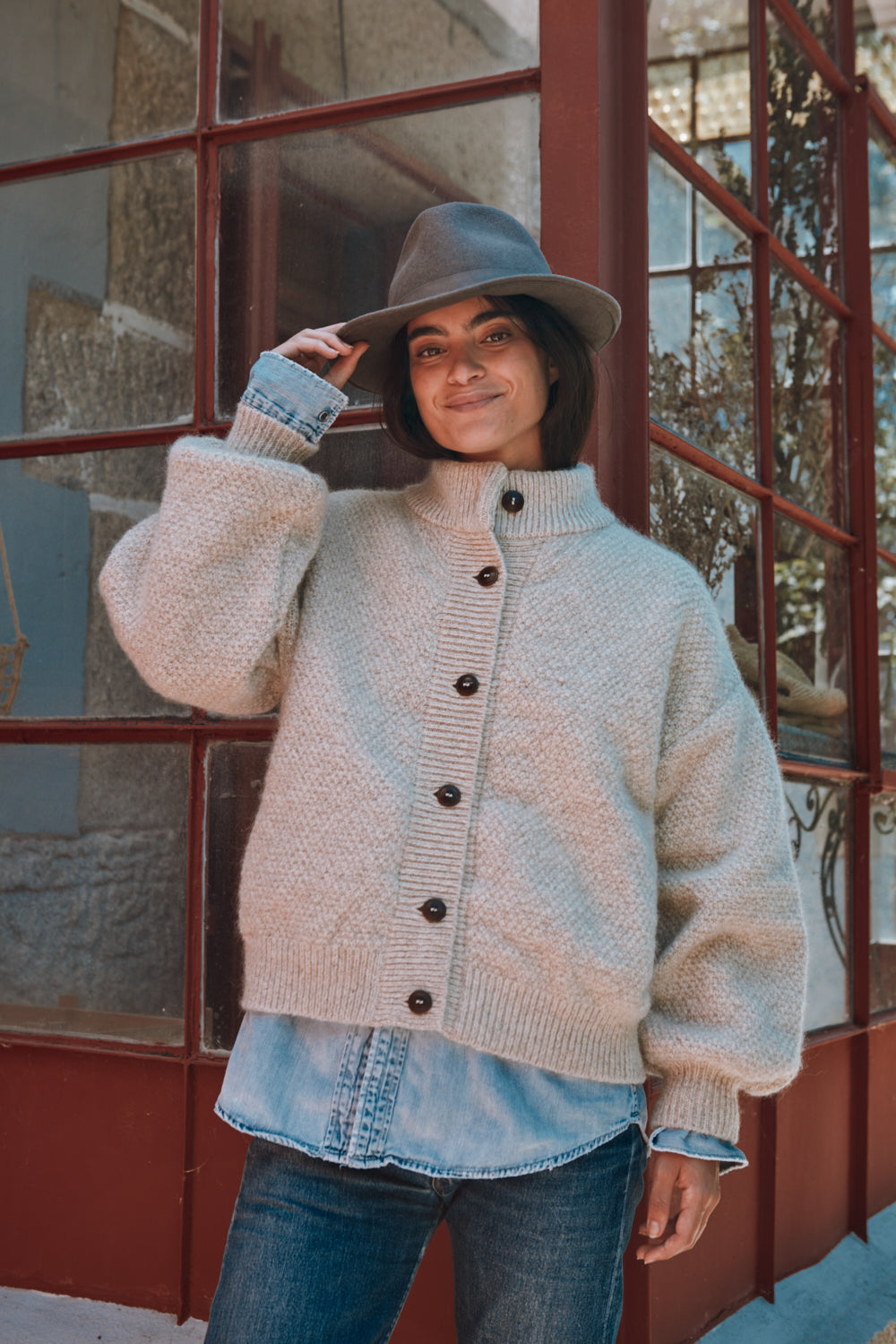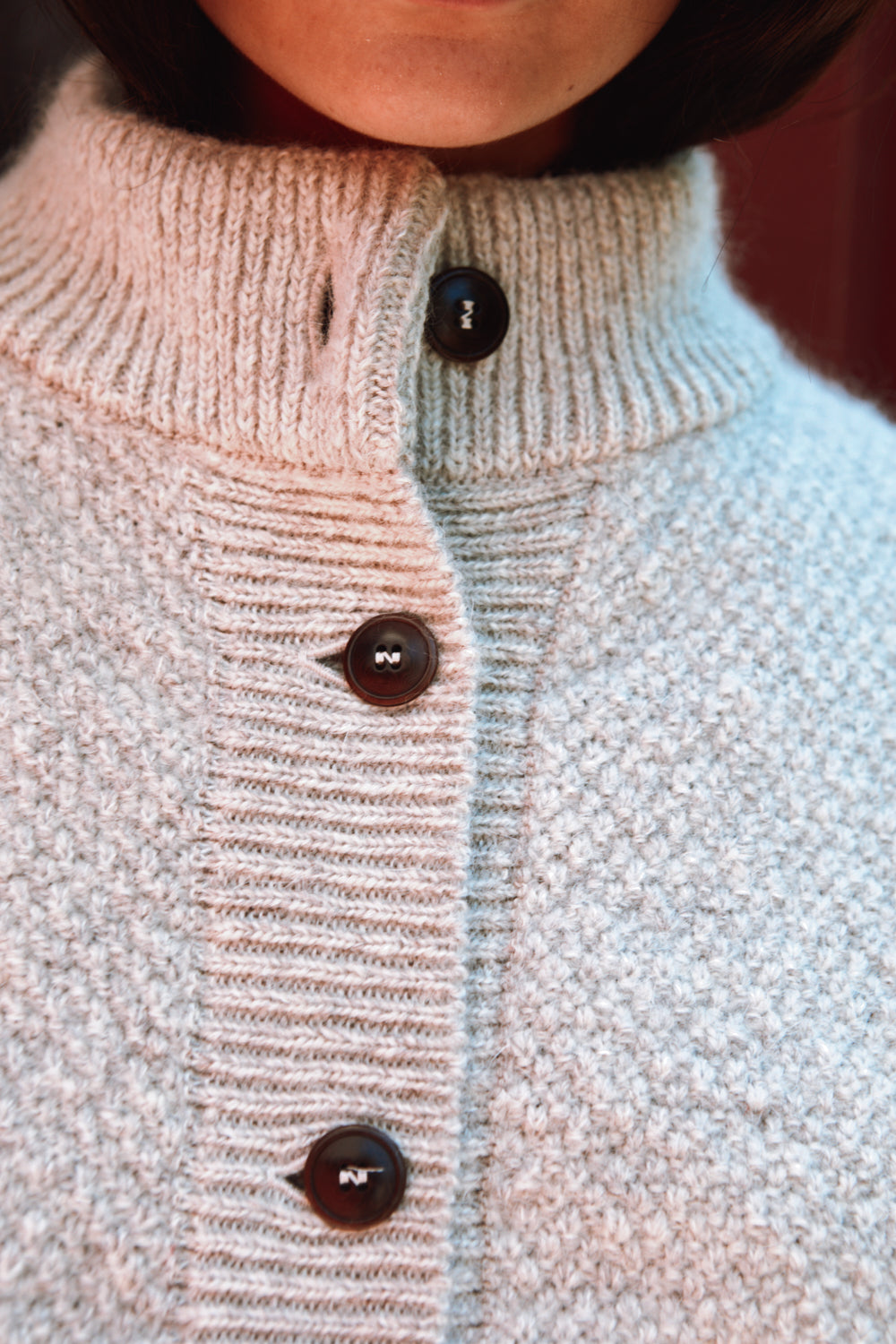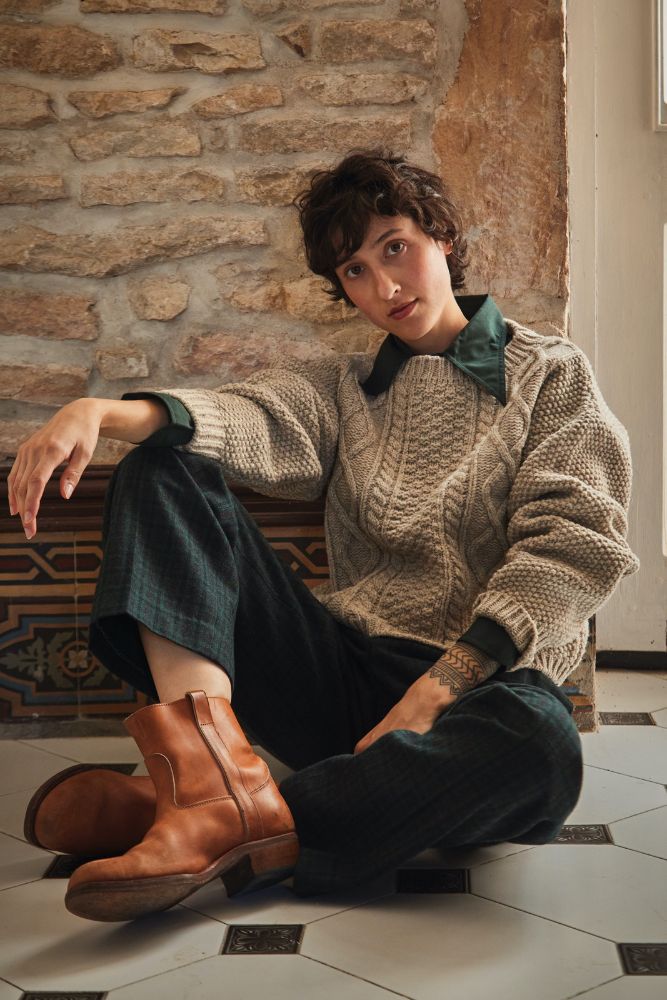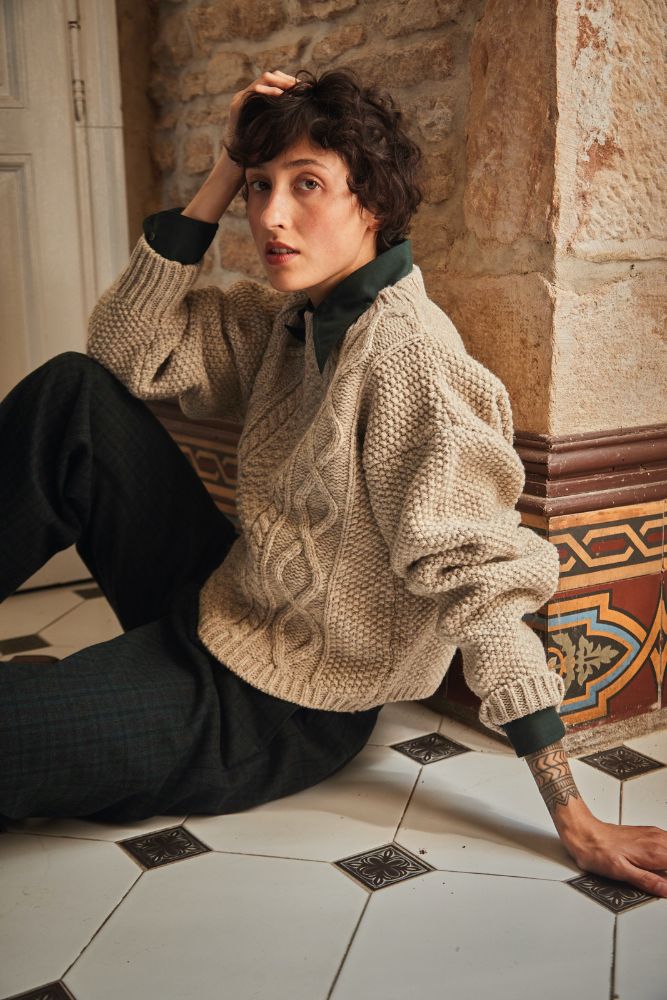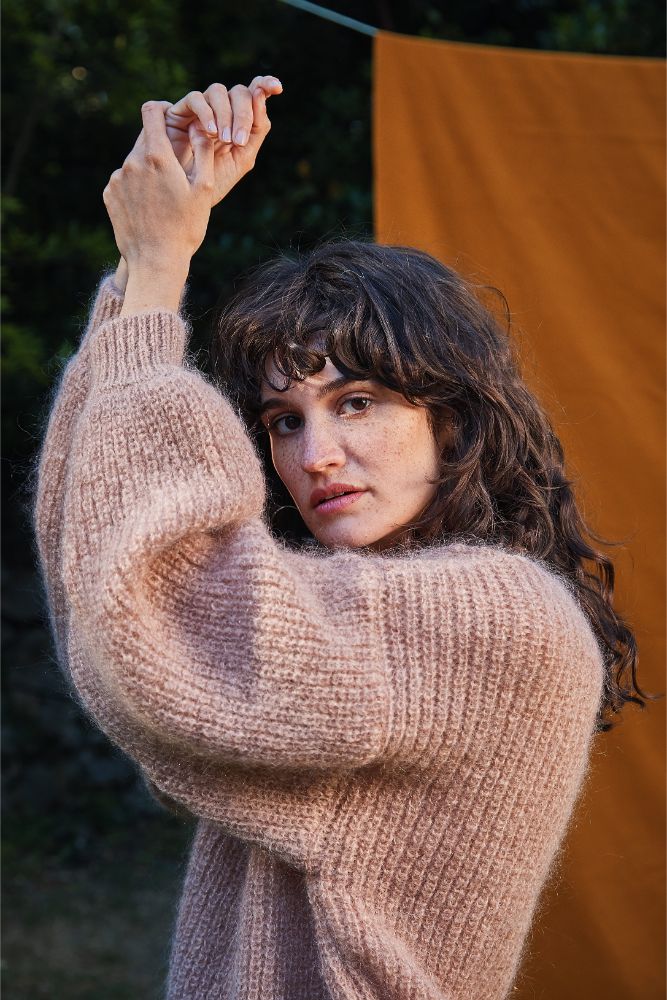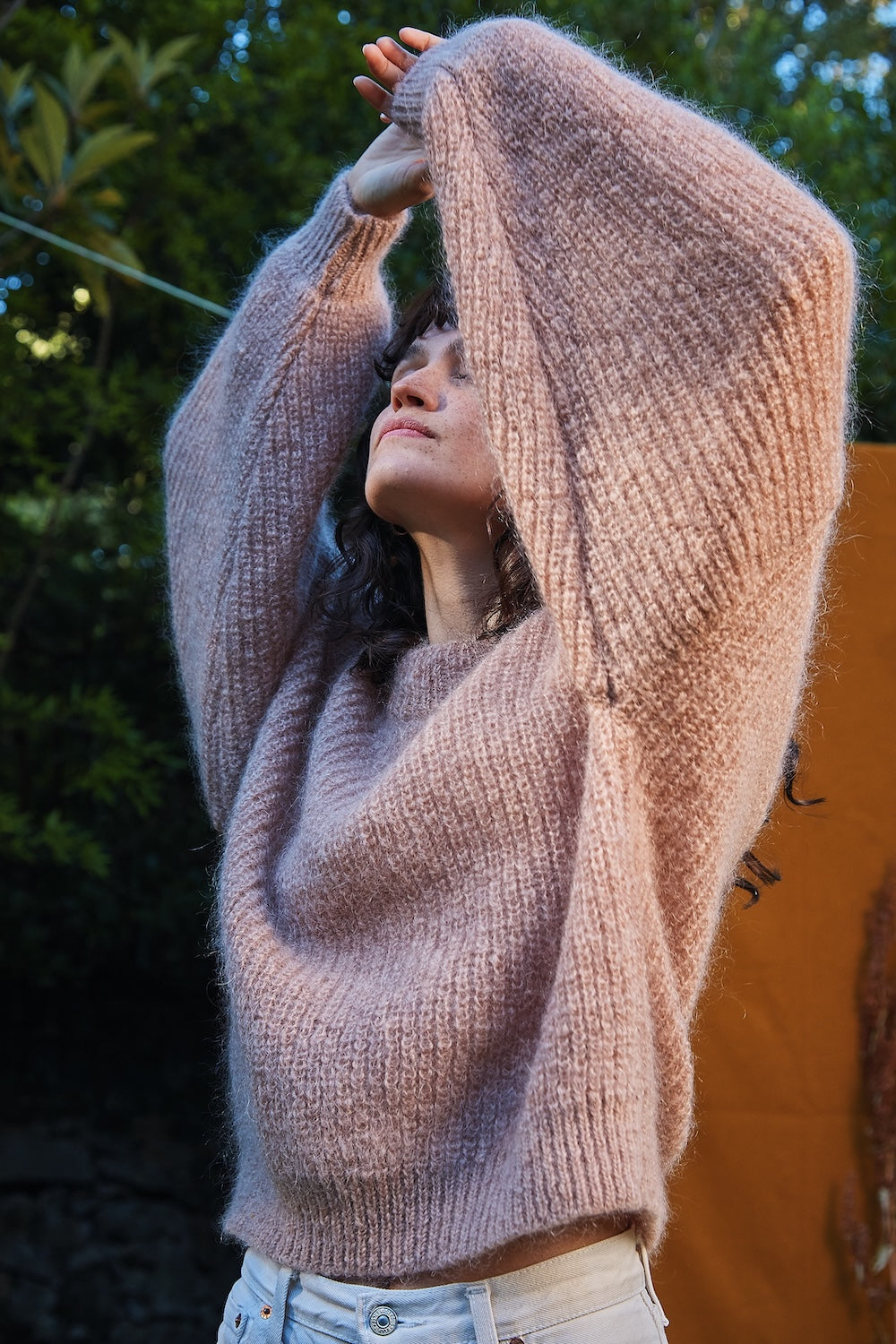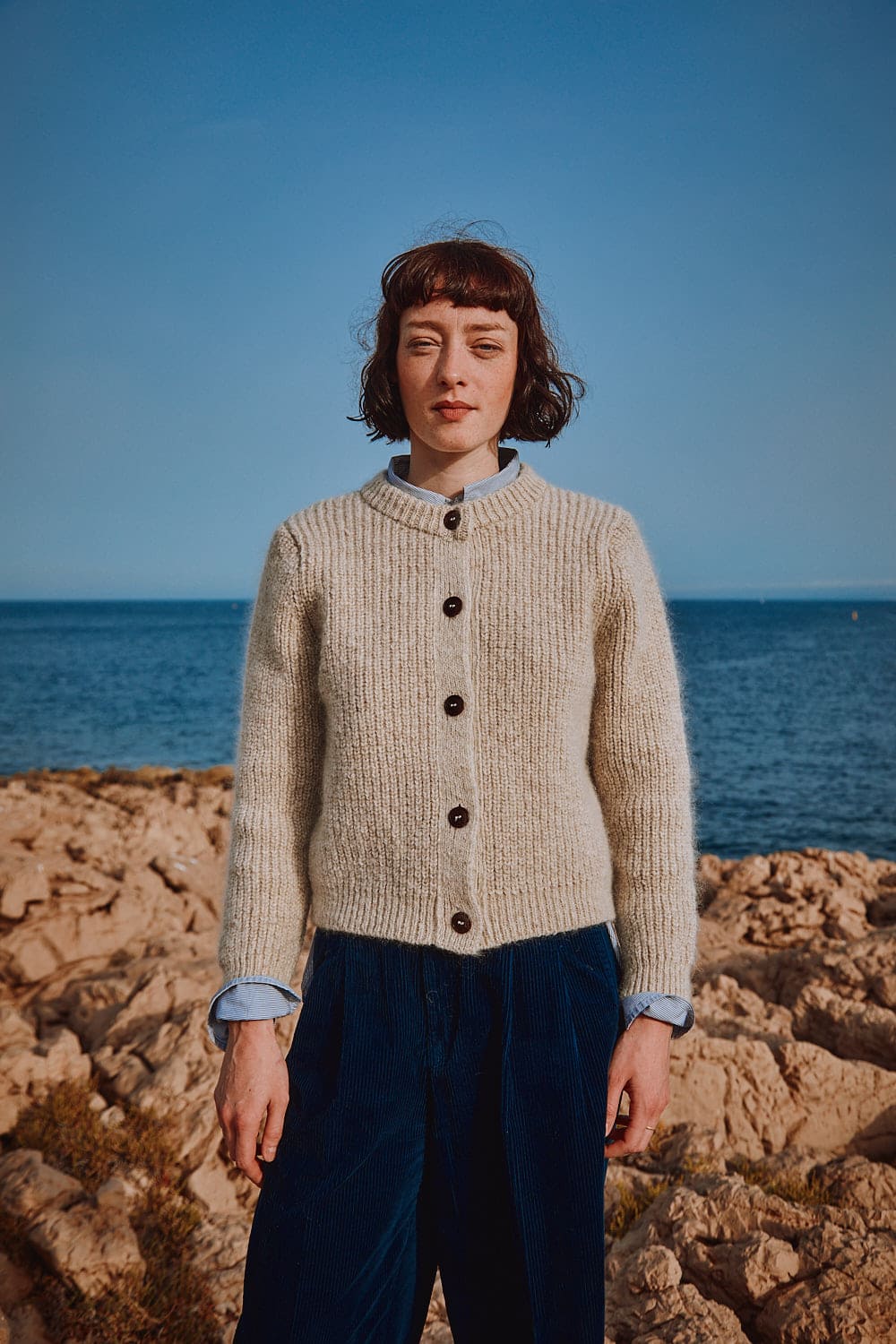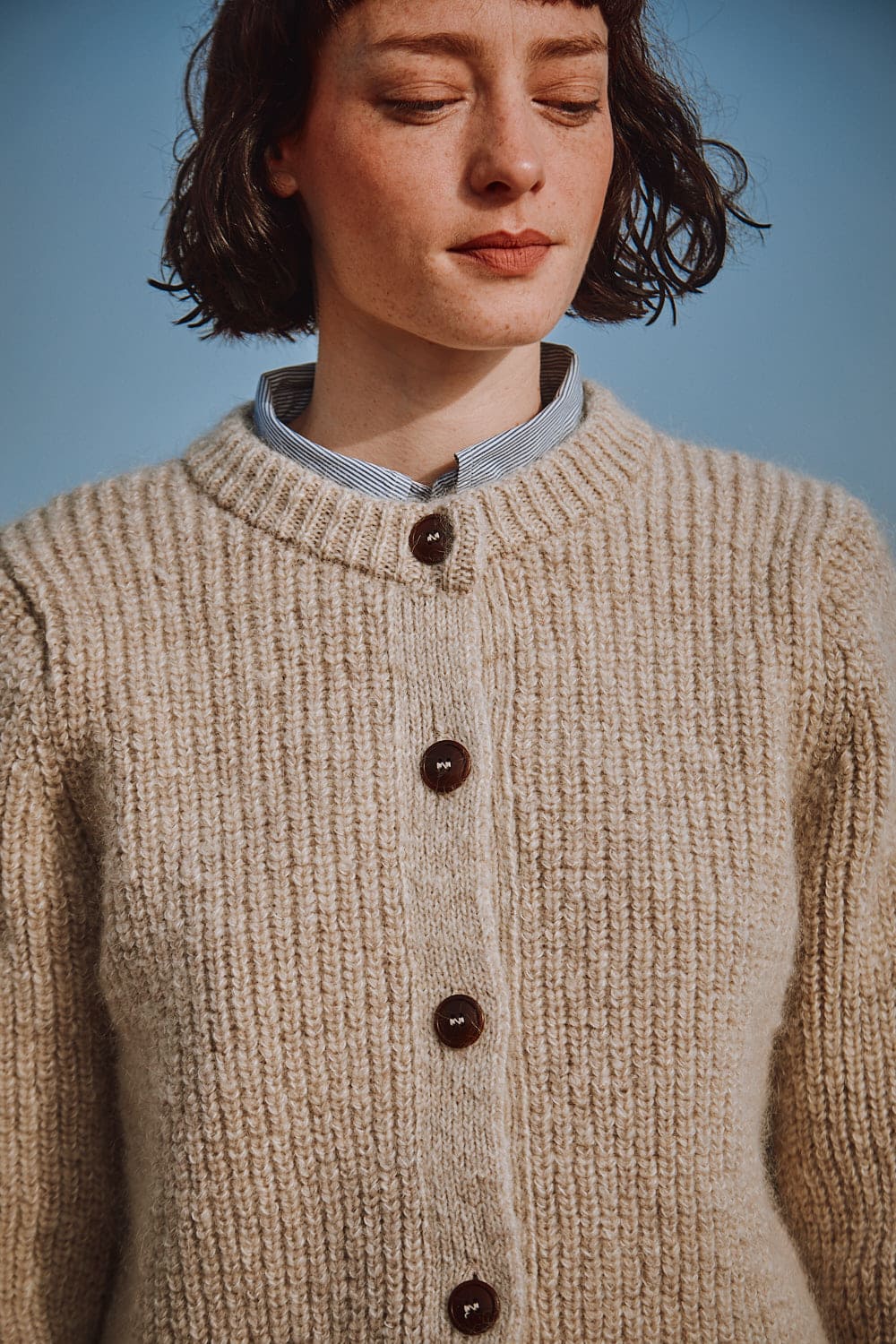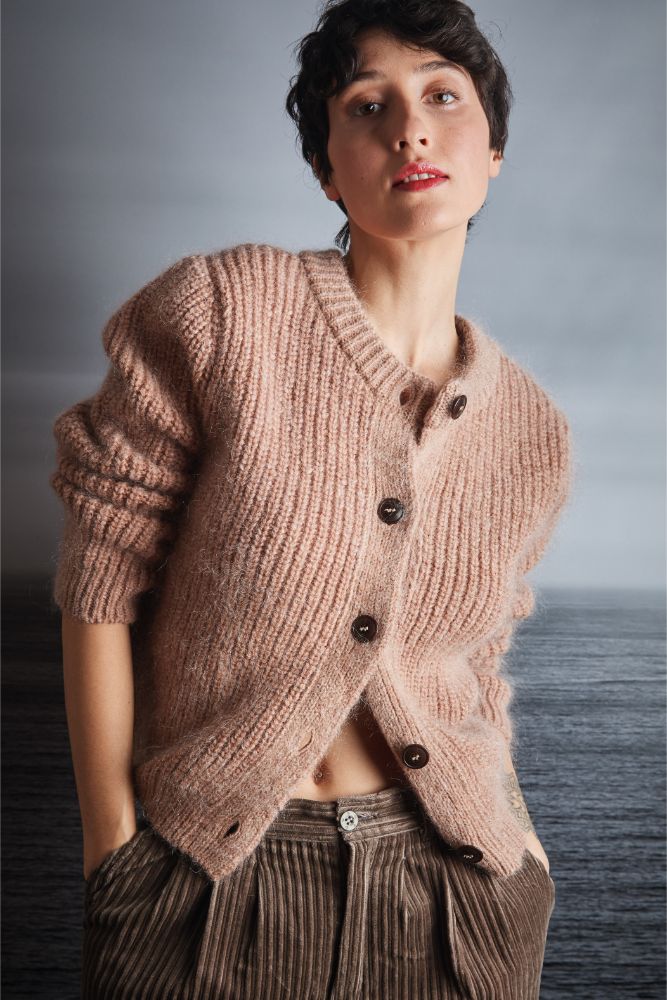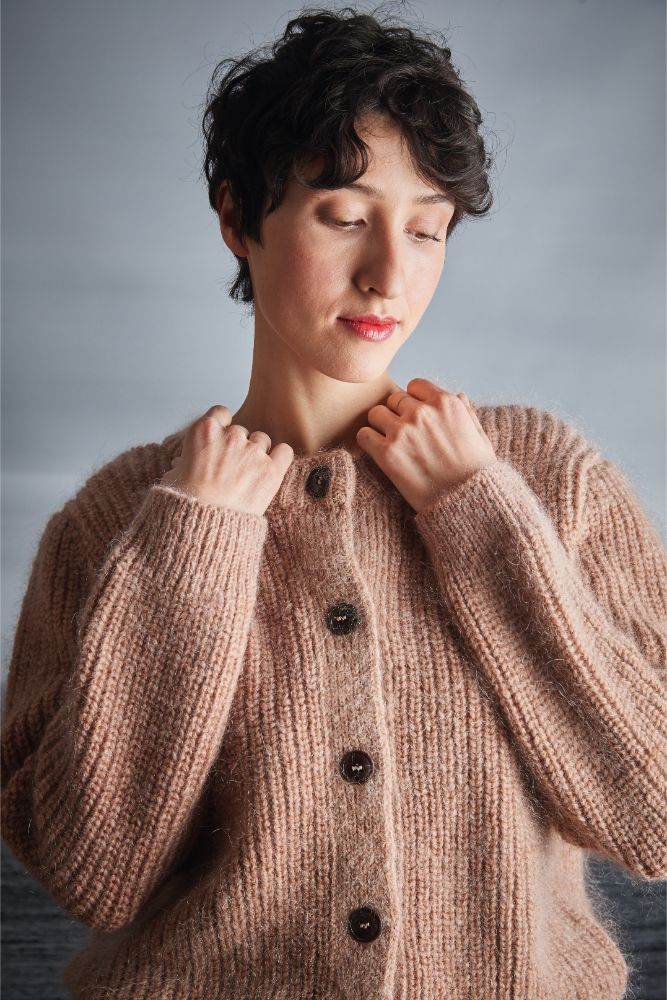WHAT ARE THE BENEFITS OF KNIT-TO-ORDER FASHION?
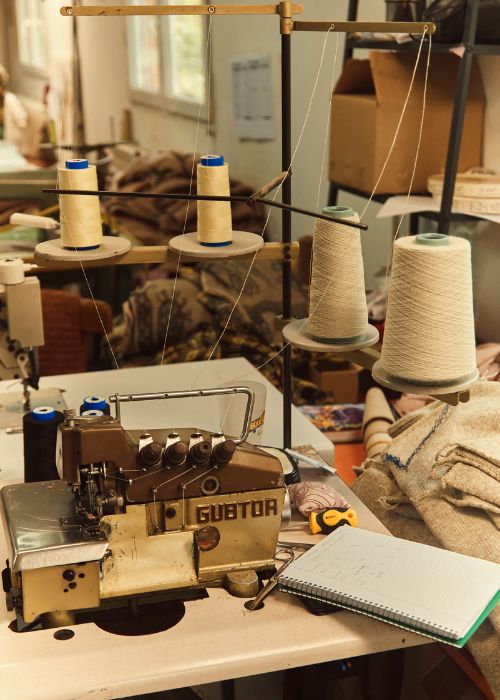
Knit-to-order fashion is quietly transforming the way clothing is made, purchased, and cherished. Instead of producing massive volumes of garments in advance—hoping they sell—this model creates each piece only after it’s ordered. The result is a slower, more intentional approach that challenges the wasteful cycle of fast fashion.
By producing only what is needed, knit-to-order fashion dramatically reduces fabric waste, lowers emissions from unsold stock, and supports zero-waste practices. At the same time, customers gain access to better-fitting, longer-lasting garments that reflect care, skill, and sustainability.
As consumer demand for ethical, eco-conscious clothing grows, knit-to-order provides a tangible path forward—valuing quality, fairness, and the planet.
Understanding Knit-to-Order Fashion
Unlike fast fashion, where brands overproduce and push endless collections, knit-to-order clothing is made on demand. At L’Envers, every sweater is knitted only after the order is placed. This reduces overstock and ensures that no resources are wasted on clothing that may never be worn.
This production model also changes how designers work. Instead of overwhelming inventories, knit-to-order brands focus on smaller, purposeful collections, often made from organic cotton, yak wool, merino wool, or mohair. It allows flexibility too—new styles can be released in limited numbers, adapted according to customer feedback.
The result is fashion that fits better, feels better, and lasts longer—both in terms of durability and design.
Environmental Benefits of Knit-to-Order Practices
The fashion industry is one of the largest polluters, responsible for 20% of global wastewater and 10% of annual carbon emissions (UNEP). Overproduction is a major culprit: millions of unsold garments end up burned or landfilled every year.
Knit-to-order directly addresses this problem:
- No overproduction → Every piece has a buyer before it’s made.
- Less waste → No excess fabric, no deadstock, no incineration.
-Smaller carbon footprint → Energy use for storage, transport, and disposal is minimized.
-Sustainable sourcing → Materials can be purchased in smaller, more responsible batches (e.g., GOTS-certified organic cotton).
By eliminating the guesswork of mass production, knit-to-order prevents unnecessary pollution and moves fashion closer to a zero-waste model.
Zero Waste: How Knit-to-Order Prevents Overproduction
Overproduction is not only environmentally damaging but economically costly. Traditional brands produce based on forecasts, often resulting in mountains of unsold garments.
Knit-to-order breaks this cycle:
- Garments are made after orders are confirmed.
- No unsold inventory.
- No clearance dumping or warehouse overflow.
This model also allows brands to prioritize quality over quantity, refining designs and focusing on materials that truly last. Consumers benefit too—with garments that fit better, feel softer, and endure wear for years rather than months.
Ethical and Sustainable Fashion Choices
Knit-to-order also creates a more human-centered fashion industry. With smaller production runs, brands can work closely with skilled artisans and ensure fair wages and safe working conditions. Knit-to-order models help shifting focus to craftsmanship instead of mass output.
Materials also reflect this shift:
- Natural, low-impact fibers like wool, yak, hemp, or organic cotton.
- Biodegradable options that reduce landfill pressure.
- Vegan-friendly textiles for conscious consumers.
At L’Envers, our sweaters are knit in small, family-run Spanish workshops. Each piece is timeless in design, crafted with care, and made to endure. It’s proof that sustainable fashion can be both elegant and ethical.
Tips for Caring for Knit-to-Order Garments
Because knit-to-order pieces are made with such care, maintaining them properly extends their lifespan even further:
1. Wash gently – cold water, mild detergent, hand wash or delicate cycle.
2. Skip the dryer – always air-dry flat to avoid stretching.
3. Store folded – prevents sagging and preserves shape.
4. Repair, don’t replace – patch holes, resew seams, or ask your brand for guidance.
5. Rotate your wardrobe – giving garments rest extends fiber resilience.
With the right care, your sweater can last for decades—a true antidote to disposable fast fashion.
Conclusion
Knit-to-order fashion offers an actual solution to the waste, overproduction, and poor quality that define today’s fast fashion. It is:
- Better for the environment → fewer emissions, less waste.
- Better for people → fairer production, artisan preservation.
- Better for you → garments that last, fit beautifully, and feel unique.
As more consumers look for purposeful ways to shop, knit-to-order proves that sustainability is not a compromise. It’s a win-win model: timeless style for the customer, fair practices for workers, and lighter impact on the planet.
Every order is a choice. And by choosing knit-to-order, you are shaping a fashion system where nothing is wasted, and everything is valued.
FAQ
Yes, sustainable knitwear is designed for durability, meaning fewer replacements, less waste, and a reduced carbon footprint.
Many sustainable sweaters can be recycled into new fibers or repurposed, extending their life cycle and minimizing fashion waste.
Best Sellers
FREE SHIPPING
from 300€ to Europe, from 320€ to North America, UK, Swiss, from 360€ to Asia
FLEXIBLE EXCHANGE AND RETURNS
within 30 days
3-PART PAYMENTS
with SplitIt
CUSTOMER SERVICE
Contact Us for advice and customization



